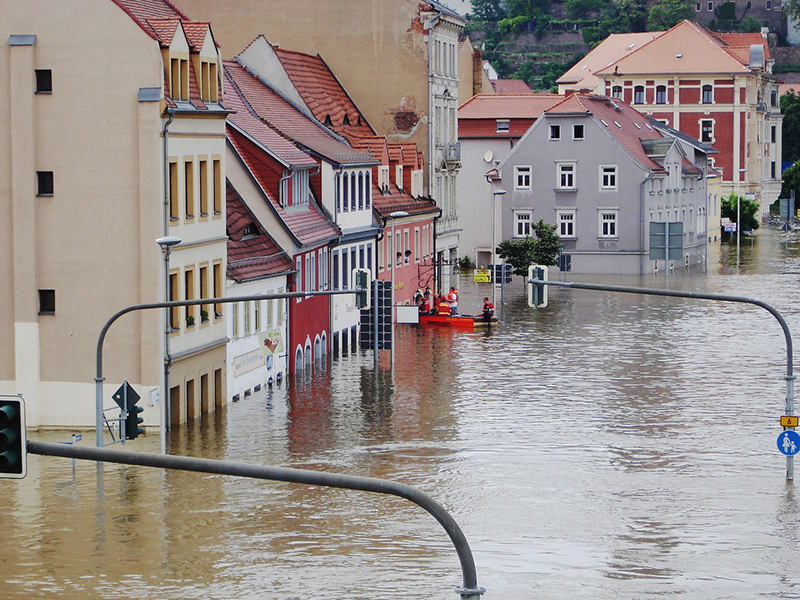 Wildfires
Wildfires
Study reveals record heat in 2023 worsened global droughts, floods and wildfires
Record heat across the world profoundly impacted the global water cycle in 2023, contributing to severe storms, floods, megadroughts and bushfires, new research from The Australian National University (ANU) shows.
The findings are outlined in a new report released today by the Global Water Monitor Consortium and led by ANU researchers.
Lead author Professor Albert Van Dijk, from ANU, said the report underscores the consequences of persistent fossil fuel burning on natural disasters, water resources, biodiversity and food security.
“Record-breaking heat waves swept across the globe in 2023, shattering previous records, from Canada to Brazil and from Spain to Thailand,” Professor Van Dijk said.
“The lack of rainfall and high temperatures exacerbated multi-year droughts in South America, the Horn of Africa and around the Mediterranean.
“Extremely hot and dry conditions inflicted extensive ecological damage on the world's largest forests. Massive wildfires ravaged Canada during the northern summer, while the Amazon rainforest and rivers rapidly descended into severe drought in late 2023.”
Some of the worst disasters of 2023 were linked to unusually strong cyclones bringing extreme rainfall to New Zealand, Mozambique, Malawi, Myanmar, Greece, Libya and Australia.
According to Professor Van Dijk, who is also Chair of the Global Water Monitor Consortium, rising sea surface and air temperatures caused by fossil fuel burning have been intensifying the strength and rainfall intensity of monsoons, cyclones and other storm systems.
This was also evident closer to home, where Cyclone Jasper battered northern Queensland and severe storms hit southeast Queensland.
“Some areas around Cairns recorded more than 800 millimetres of rain. The torrential rains caused widespread flooding. That was because the cyclone moved much slower than expected,” he said.
“The recent cyclones and intensive storms in Queensland and elsewhere in Australia should not be seen as isolated freak events but part of a global pattern that was quite clear in 2023.
“In 2023, we saw cyclones behave in unexpected and deadly ways. The longest-lived cyclone ever recorded battered southeastern Africa for weeks.
“Warmer sea temperatures fuelled those freak behaviours, and we can expect to see more of these extreme events going forward.”
Professor Van Dijk said the last two decades have seen increased air temperatures and declining air humidity, causing increased heat stress and water requirements for people, crops and ecosystems, while intensifying droughts.
Relative air humidity over the global land surface in 2023 was the second driest on record after 2021, continuing a trend towards drier and more extreme conditions. 2023 was Earth’s hottest year on record, showing what a typical future year with 1.5 degrees Celsius warming may look like.
“A total of 77 countries experienced the highest average annual temperature in at least 45 years,” Professor Van Dijk said.
Professor Van Dijk said 2023 was a year of extremes, with increasing extreme dry and wet conditions and more unprecedented weather events. This is in line with ongoing changes in the water cycle over the last two decades.
“The events of 2023 show how ongoing climate change is threatening our planet and lives more with every passing year,” he said.
“Globally, we’re seeing an increase in the frequency and intensity of rainfall events and river flooding. But at the same time, there are also more frequent and faster developing droughts, or ‘flash droughts’.
“That can cause crop failure and destructive wildfires in a matter of weeks or months. With the global food challenge, biodiversity crisis and an extremely urgent need to reduce carbon emissions, these droughts and wildfires are among our greatest global threats.”
The research team used data from thousands of ground stations and satellites orbiting the Earth to provide real-time information on rainfall, air temperature, air humidity, soil and groundwater conditions, vegetation, river flows, flooding, and lake volumes.
The Global Water Monitor is a collaboration between institutions across the world and involves various public and private organisations.
Support Our Journalism
We cannot do without you.. your contribution supports unbiased journalism
IBNS is not driven by any ism- not wokeism, not racism, not skewed secularism, not hyper right-wing or left liberal ideals, nor by any hardline religious beliefs or hyper nationalism. We want to serve you good old objective news, as they are. We do not judge or preach. We let people decide for themselves. We only try to present factual and well-sourced news.






